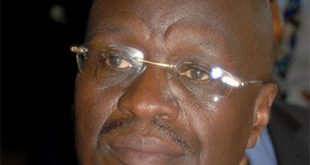
By Sarah Namulondo
Why Uganda is becoming internationally known as a consuming and transit country for illicit substances
Recent events spotlighting illicit drug use prompted me to seek to find how easily it could be for one to buy drugs. Instinctively, I targeted some Kampala slums because I assumed they are more drug trade hit than the upscale neighbourhoods. In the Kifumbira Zone of Kamwokya, the residential sprawl that borders the upscale Kololo suburb in northeast part of Kampala Central Division, I was directed to Church Zone as the most notorious haven for drug dealing. I was given a specific supermarket to go to right next to the main road. I thought i needed to be secretive, so once inside I whispered: ‘I want kuber”.
The lady at the counter begged pardon. Since there were very few customers, I mustered courage and said a little louder: “I want Kuber”. None of the people in the shop even shifted to glance at me and the Asian-looking woman bent down the counter and gave me a sachet of Kuber.
When I told her I needed large amounts; like 10 boxes she said her boss buys it from a supplier and suggested I do the same. I paid the Shs1000 for the Kuber sachet and walked away. That had been easy. I decided to try it again, this time from a cosmetics shop. Without a blink, the female attendant bent down her counter and gave me the sachet. I paid then asked her for another drug like Kuber but in a different packaging.
“Oh you mean Gizeh,” she said, “I do not have it.” She directed me to two shops she said sell it. The boda boda rider who told me that many shops in the area sell Kuber was possibly right. This surprised me because The New Vision newspaper has as early as 2008 written an article that quoted police boss Asan Kasingye and a psychiatrist at Butabika Mental Health Referral Hospital, Dr David Basangwa, say Kuber or Gizeh are dangerous, addictive, Central Nervous System (CNS) stimulants similar to cocaine and heroin.
In Kamwokya, another drug that is sold openly is kat, also called mairungi. A woman selling kat outside a retail shop easily directed me to a spot where rolled marijuana (njagga) could be bought. But when I asked if I could buy heroin or cocaine, I failed to find a dealer.
Later when I met Robert Sentamu Kyagulanyi aka Bobi wine, the self-proclaimed `Ghetto President’ who hails from Kamwokya, told me the reason I could not get heroin or cocaine was I was using “wrong terminology”.
Another hotspot for drug users is the Kisenyi slum, right in the centre of the Kampala City Central Business District. The anti-narcotics police had recently raided a number of shops there, and recovered narcotic drugs and arrested a number of suspected dealers.
Here, I met with one of the area Local Council leaders in the evening. He lamented over how drug dealing and consumption had destroyed the area by increasing HIV/Prevalence, crime and prostitution. He said the drugs business is being supported by “big tycoons who the police are scared of arresting”. He said “small dealers” are harassed to send the message to the big dealers.
He said, for example, the drug dealers who were arrested in the recent raid had fingered out a woman only known as Rose who lives in Makerere Kivulu as their supplier but police is scared of arresting her because she owns a big transport business in the area. In another incident in December 2012, a bus had rolled up in the area at 8pm and non-uniformed claiming to be law enforcers had started arresting alleged drug dealers in the area. He was called in when a mob ganged up against them and started beating them.
“I calmed down the people and told the driver to open the door and release those arrested and they drove away,” he said.
He said the bus incident remains a mystery since the Anti-narcotics Unit always reports to him before doing a drugcrackdown. “It’s quite tricky because arresting small drug dealers does not eliminate the problem,” he said, “There must be something wrong with our own law enforcers these days because all the other drugs beside marijuana and kat are not grown or manufactured in Uganda. Where and how the drugs get into the country without their consent is still a mystery to me.”
When the LC official agreed to give us a guide to take us around the area to see firsthand the extent of the drug abuse and trade,I was clearly looking over my shoulder but no one seemed to be watching us.
We did not even realise that word had already spread that we were journalists until someone alerted us with a friendly question to our guide.
“Hey, where are you taking the journalists?” he asked.
After this I thought it would be hard for us to even get our hands on the drugs but it seemed like the dealers in Muzaana zone do not feel threatened at all.
This is where benzene, the toxic, colourless, sweet-smelling, and highly inflammable chemical consumed by street kids originates. I was able to buy some from a boy at a garbage collection dump where some kids were scavenging used water bottles. The dealer looked around 15 to 16 years old and was smoking a cigarette and sniffing benzene at the same time.
When I said I wanted to buy cocaine and heroin, our guide seemed hesitant. I asked why and he took me aside and told me cocaine and heroin is quite expensive and most of the sellers only sell to users not to anyone.
| No. | Region | Includes | Narcotic/drug cases |
| 1 | Kampala Metropolitan Police East | CPS Kampala, Katwe, Kabalagala, Kajjansi, Entebbe | 135 |
| 2 | Kampala Metropolitan Police South | Old Kampala, Wakiso, Wandegeya, Kawempe | 277 |
| 3 | Kampala Metropolitan Police North | Kayunga, Nakasongola, Buikwe, Nakaseke, Buvuma,Luweero | 105 |
| 4 | Central East | Kiboga, Mityana, Mpigi, Gomba, Mubende Butambala, Kyankwanzi | 166 |
| 5 | Central West | Rakai, Lyantonde, Masaka, Sembabule, Bukomansimbi, Kalungu, Lwengo, Kalangala | 108 |
| 6 | Southern | Kisoro, Kabale, Kanungu, Rukungiri | 141 |
| 7 | South South Western | Mbarara, Bushenyi, Ibanda, Ntugamo, Kiruhura, Isingiro, Rubirizi, Buhweju, Sheema | 82 |
| 8 | South Western | Masindi, Kiryadongo, Kibale, Hoima, Buliisa | 90 |
| 9 | Mid-Western | Kabarole, Kasese, Bundibujo, Kamwenge, Kyenjojo, Ntoroko, Kyegegwa | 46 |
| 10 | Western | Arua,, Adjumani, Nyadri, Moyo, Zombo, Yumbe, Koboko, Nebbi | 60 |
| 11 | North Western | Lamwo, Agago, Nwoya, Amuru, Kitgum,Pader, Gulu | 93 |
| 12 | Northern | Lira, Apac, Oyam, Amolatar, Kole, Alebtong | 49 |
Top class users
When I insisted, he led us to a path which over looks Kisenyi Taxi Park to a joint where users go to get “fixed”. He told us that top musicians and government officials go to that particular joint for fixes or they send there drivers to buy for them. Although drug dealing and abuse is often associated with slums, class `A’ drugs like cocaine, morphine, and heroin are used in some up market professions and neighbourhoods. When I handed our guide the money for the drugs, he disappeared.
We stood by the roadside where a local trader was roasting mchomo for around 15minutes before he came back with a tiny piece of paper which hardly looked worth the money. He gave me a balance of Shs 4000 and told me he bought the cheaper cocaine because the “white cocaine” is expensive.
Mutaawe Rogers, the Senior Program Officer at Uganda Youth Development Link which rehabilitates young drug users knows first hand the danger of these drugs. He showed me the effects of drug abuse in pictures.
One particular picture caught my eye; it had a young man around 17-18 years who was addicted to heroin injecting it in his groin.
I asked Mutaawe why he was injecting it there and he told me that after prolonged use his veins in the arms and legs “collapsed” and he resorted to injecting into the veins in his groin since that was the only place left with veins. When I looked at his legs and arms, they looked like a landscape of the war within his soul which always got him into afflicting himself.
“Every time he injects himself it only leads him to one possible solution, which was treatment for his affliction, because no jail, police or scarcity of drugs could ever stop his addiction,” Mutaawe said.
Weak laws
I also met with Robert Ojaba, the deputy commissioner of the Anti-narcotics Department of the Uganda Police who told me that Uganda does not have an effective law, though a proposed Bill has been on the shelves since 2005. He said the National Drug Authority Act of 2000 is weak and does not have a master plan and policy on drug abuse. In 2011, the Uganda police reported and investigated 1,563 cases on drug trafficking, compared to 871 cases in 2010, which reflected a 79 percent increase from the previous year.
Ojaba says when the current law was being drafted it did not put in clauses concerning illicit drugs. It focused only on fake pharmaceutical drugs because little was known about the dangers of hard core drugs. He said that although the Uganda, Police operates an anti-narcotics unit which is very vigilant at airports and in destroying marijuana fields, it is underfunded, under-staffed, and with limited infrastructure.
Ojaba wants parliament to pass the Narcotics and Psychotic Substances Control Bill which was proposed in 2007. “Our job will be improved because that proposed law sentences dealers caught with exhibits to 10 years of imprisonment and not one year like the current law,” he said.
But some critics of anti-narcotics action, like Bobi Wine, say police acts in ignorance.
“People don’t know, but they don’t know that they don’t know,” he said, “Who in their rightful senses arrests a man who is selling a herb (marijuana) and legalises the sale of Kuber which is a mixture of cocaine, heroin and some tobacco and they label it as tobacco?
“Marijuana is a herb; like omulondo (edible root for manpower). It has fewer side effects than cocaine, benzene, heroin, kuber and what have you,” Bobi Wine said.
He was unhappy that law enforcers classify all drugs as “Njagga” meaning marijuana which misleads the public into thinking that all drug users are using “the herb” which is not true. He said policy makers should work hard on setting up strong institutional laws regarding drug dealing and using because users get bad side effects like a strained heart, brain and untimely deaths.
The majority of cases of drug abuse occurred in the Buganda region (1-5 above) with south Uganda also upcoming.
 The Independent Uganda: You get the Truth we Pay the Price
The Independent Uganda: You get the Truth we Pay the Price



